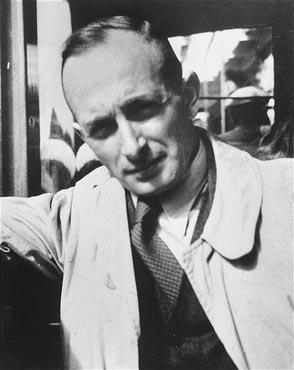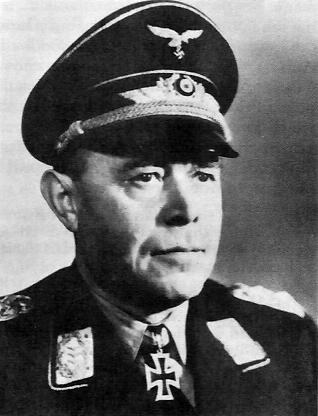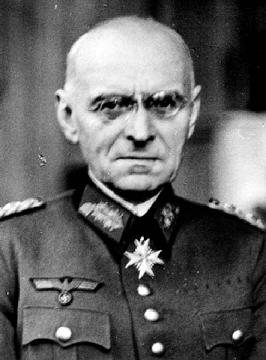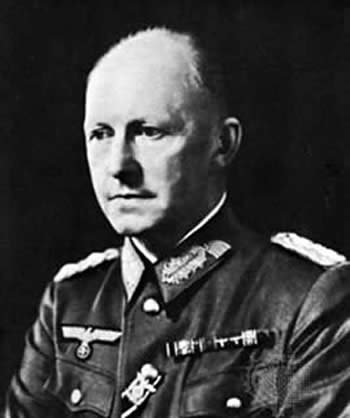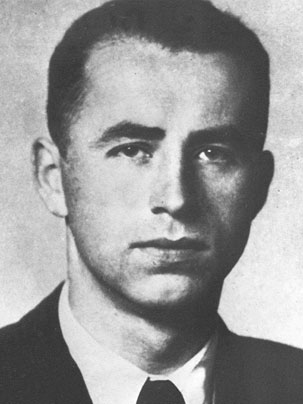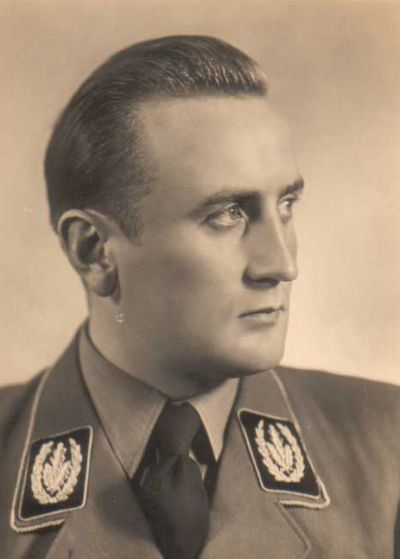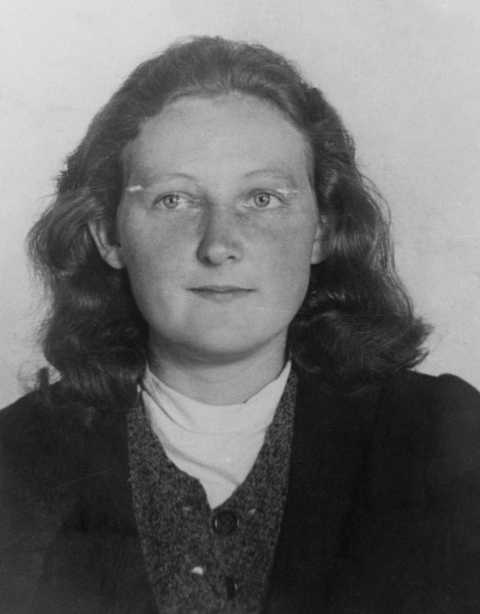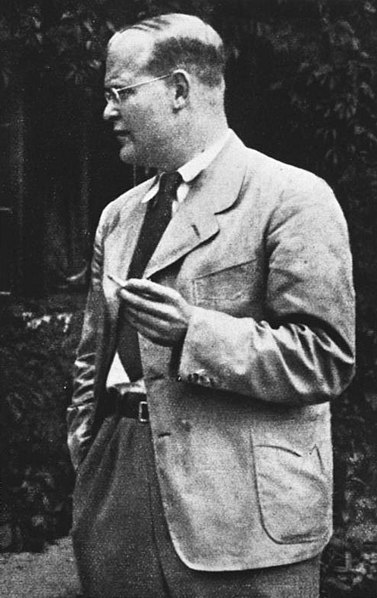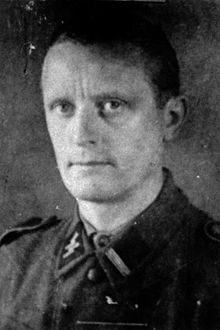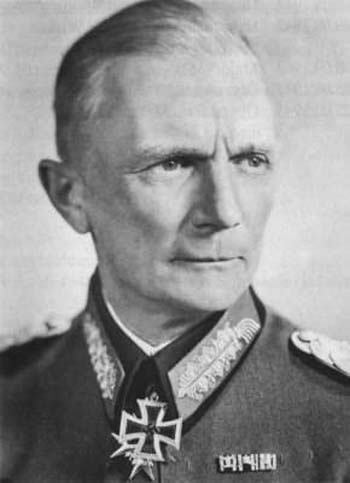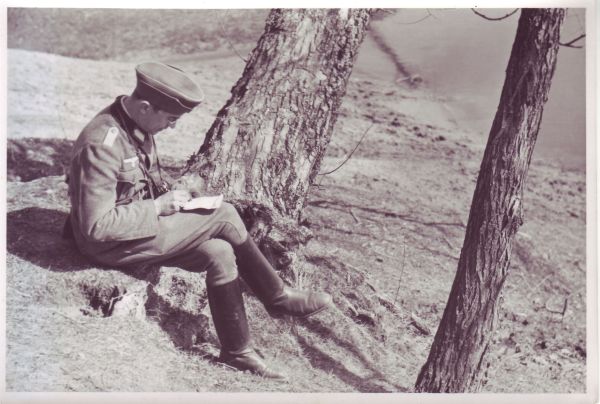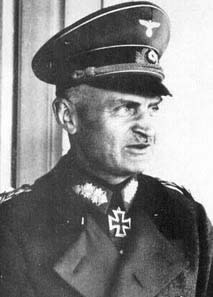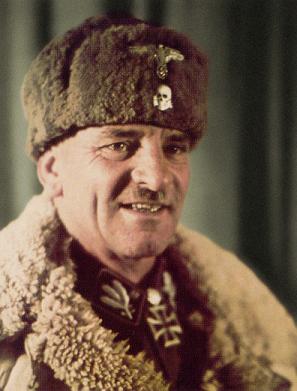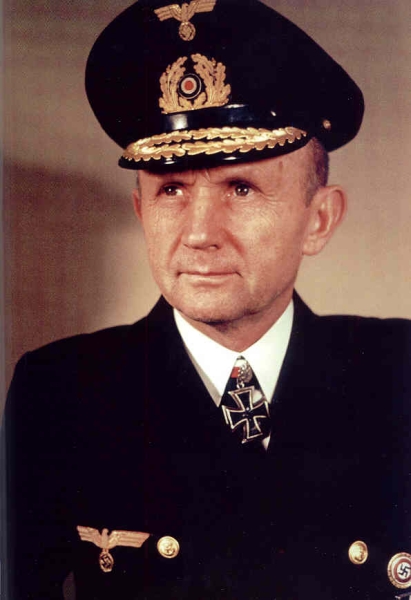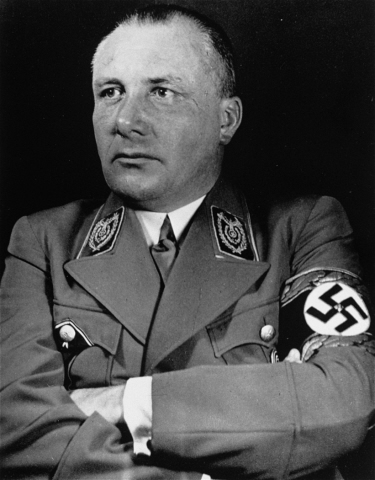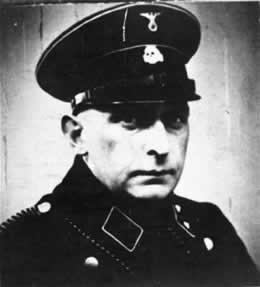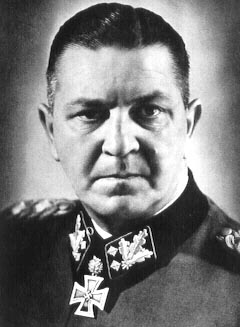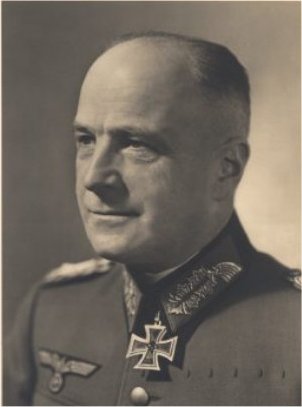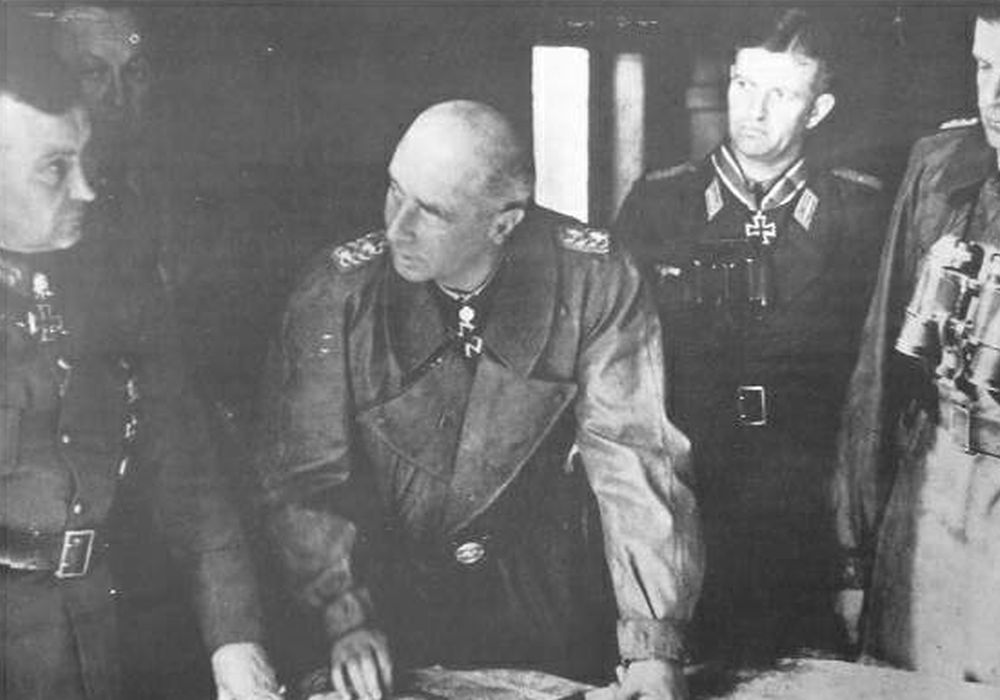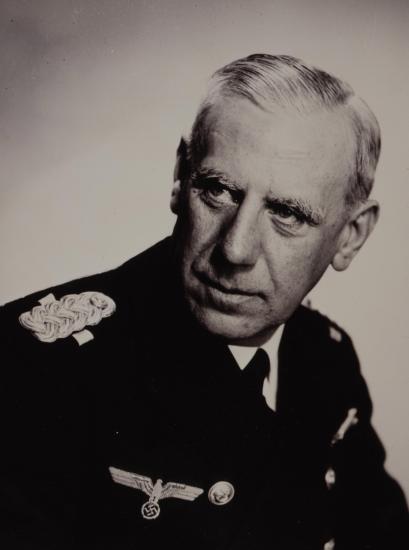Articles
- Article by Kevin Prenger
- Published on January 22nd, 2016
Adolf Eichmann
Introduction During Hitler’s reign over the Third Reich, some 6 million Jews were killed. This massive process of extermination was carried out by the SS (Schutzstaffel) led by Heinrich Himmler. Himmler Bio Himmler) was assisted by various Nazi officials who co-ordinated the deportation to the extermination camps. Adolf Eichmann was the most important organiser of these deportations. From the very beginning of his Nazi career, Eichmann occupied himself with Jewish matters. When he was put in charge of the Jewish Section of the Gestapo (Secret State Police) within the Reichssicherheitshauptamt (RSHA, Head Office of State Security) he became one of the most important designers of the Holocaust.
- Article by Arnold Palthe
- Published on November 26th, 2016
Albert Kesselring
Albert Kesselring was born November 30, 1885 in Marktsteft in the region of Unterfranken in Bavaria. He was the son of a teacher. Kesselring attended school in Bayreuth. He entered service with the Bavarian artillery in 1904, was promoted to Leutnant and placed in command of a shock troop. In 1910 he married Pauline Keyssler. In 1952, they adopted a son.
- Article by Gerd Van der Auwera
- Published on December 19th, 2017
Alexander von Falkenhausen
Ernst Alexander Alfred Hermann von Falkenhausen, cousin of the Governor-general in Belgium during World War One, was born October 29, 1878 in Blumenthal, Silesia in a family of Prussian landed nobility. Hence, he spent his youth in a roomy country house where valets and maids saw to all his needs.
- Article by Tom Notten
- Published on January 14th, 2016
Alfred Jodl
Alfred Jodl was born May 10th , 1890 in Würzburg as the son of a soldier. At the age of 13, he attended the School of Cadets in Munich, graduating in 1910. After having completed his military training, he served in an artilleryregiment.
- Article by Kevin Prenger
- Published on November 24th, 2017
Alois Brunner
Up to 2014, Alois Brunner was the most wanted Nazi war criminal. During World War Two, he was Adolf Eichmann’s closest associate and responsible for the deportation of tens of thousands of Jews to the extermination camps in Poland. In December 2005 it was assumend he was on holiday in Switzerland but he could not be tracked down.
- Article by Bob Erinkveld
- Published on July 15th, 2016
Arthur Axmann
Arthur Axmann was born February 18th, 1913 in Hagen, (Northern Rhineland -Westphalia) the youngest of five children of lawyer Alois Axmann and his wife Emma. In 1916, the family moved to Berlin where Alois was to work as an insurance agent until his death in 1918. In 1919 Arthur was registered in the 300 Gemeindeschule (primary school) in Berlin. Based on his excellent study results, he was upgraded and in 1922 he left with a scholarship for the Oberrealschule. This school is comparable to a gymnasium although the students were taught an elementary Latin and further received hardly any classical education.
- Article by Annabel Junge
- Published on July 9th, 2020
Cato Bontjes van Beek
Cato Bontjes van Beek, known by friends and family as Dodo, was a happy-go-lucky child who lived life to the full. She made friends easily and was often found encouraging her brothers, sisters, and the neighbourhood children to go walking or swimming, or to take part in sports matches and theatre shows. Along with her gregarious nature, Cato was outspoken on matters of fairness and justice.
- Article by Annabel Junge
- Published on August 8th, 2021
Dietrich Bonhoeffer
On 5 April 1943 Dietrich Bonhoeffer was arrested and held in the house of detention at the Wehrmacht in Berlin-Tegel. The Gestapo indicted him on a charge of "Refusing military service and helping Jews to escape". At that time the trips abroad that Bonhoeffer undertook were only under suspicion. Who was this pastor?
- Article by Arnold Palthe
- Published on March 22nd, 2018
Erich Rajakowitsch
Erich Rajakowitsch, born in 1905 in Trieste, was a lawyer in Graz first, a small town which was also the birthplace of another well known figure, Bishop Alois Hudal. In addition, Alois was also the son-in-law of Anton Rintelen, governor of Stiermarken and the Austrian ambassador to Italy. Erich Rajakowitsch, holding the rank of Hauptsturmführer Waffen-SS and chief of the special office for the Jewish question, was charged with complicity in the deportation of 10,000 Dutch Jews who were deported from Camp Westerbork to Auschwitz from 1942 onwards, including Anne Frank (Bio Frank, Anne) from Amsterdam.
- Article by Tom Notten
- Published on October 19th, 2016
Fedor von Bock
Fedor von Bock was born December 3rd 1880 in Kustrin (now Kostrzyn, Poland), and was the son of Moritz von Bock, officer in the army. His mother was a distant relative of the future Prussian Minister of War and Chief of the General Staff Von Falkenhayn.
- Article by Kevin Prenger
- Published on May 29th, 2017
Hans Bayer
It was a historical first: war correspondents of a Propaganda-kompanie (PK or propaganda company) of the Wehrmacht fighting alongside front troops. "Whilst the pioneer of the shock forces cold-bloodedly aims his flamethrower without fear of death in order to break open an enemy bunker, " so Nazi propaganda minister Joseph Goebbels declared in May 1941, "a PK Mann will stand beside him with equal contempt of death and cold-bloodedness to record this dramatic and spectacular event in words or images." One of these PK men, called Kriegsberichter (war reporter) was the German author and journalist Thaddäus Troll, whose real name was Hans Bayer.
- Article by Tom Notten
- Published on March 18th, 2013
Johannes Blaskowitz
Johannes Blaskowitz was born on July 10th 1883 in Paterswalde , East Prussia. After receiving his 7 year education at the cadet’s school in Köslin and in Gross-Lichterfelde in Berlin he joined the Prussian army as an infantry man. In 1909 Blaskowitz went to the military academy where he graduated in 1911. After this he was assigned to a post in an infantry regiment.
- Article by Arnold Palthe
- Published on November 1st, 2015
Joseph Dietrich
Josef "Sepp" Dietrich was born May 8th, 1892 in Hawangen in Bavaria. He started his military career in 1911 in the 4th Artillery Regiment of the Bavarian army and took part with this unit in the First Wold War. He was an artilleryman but was in fact ashamed of it, later on he claimed to have been a non commissioned officer in the infantry. In the course of the war he was wounded several times and earned various decorations like the Iron Cross II and I, as well as the Verwundetenabzeichen in Schwarz (Wounded Badge in Black).
- Article by Peter Kimenai
- Published on December 8th, 2015
Karl Dönitz
Karl Dönitz was born September 16th, 1891 in Grünau, at the time a small town near Berlin and today a suburb of the German capital. His father was Emil Dönitz and his mother Anna Beyer. Karl had an elder brother Friedrich. In April 1910, Karl joined the Kaiserliche Marine (Imperial Navy) and he entered service as Seekadett (midshipman). Hardly a year later, on April 15th, 1911 he was promoted to Fähnrich zur See (ensign). At the age of 22, Karl Dönitz received his commission as officer, holding the rank of Leutnant zur See (Lieutenant 3rd classs).
- Article by Wesley Dankers
- Published on November 10th, 2015
Martin Bormann
Martin Bormann is considered by many as "the shadow man". Whatever one may say about this nickname, it is partially correct. Bormann almost never showed up in public; yet his power within the Third Reich was considerable. In this article a biography of this man will be presented and an attempt is made to discover how vast his power really was.
- Article by Kevin Prenger
- Published on January 26th, 2016
Paul Blobel
Paul Blobel was the leader of Sonderkommando 4a, a part of Einstazgruppe C. The Einsatzgruppen were tasked with executing communists, partizans, Jews and others in the Soviet Union. Blobel’s Sonderkommando 4a became notorious by the mass execution of no less than 33.771 Jews in Babi Jar, a ravine near Kiev. Blobel also commanded Aktion 1005, the operation aimed at erasing the traces of the mass extermination in the East. According to his service record, Blobel was "an energetic personality with good qualities of leadership" and because of his cruelty and bloodthirstyness he was the ideal man for all these dirty jobs. After the war he showed no remorse and hid behind the orders of his superiors he had had to obey as a soldier.
- Article by Kevin Prenger
- Published on August 15th, 2017
Theodor Eicke
Theodor Eicke was born October 17, 1892 in Hüdingen in the German federal state of Lotharingen. He was the youngest of 11 children and his father, Heinrich Eicke, was a station master. After primary school he attended secondary school in Hampont. Theodor was not a good pupil, he did not finish school and exchanged the school benches for the army. In 1909, he started his career in the German Imperial Army. During the First World War he served as paymaster on the western front and was awarded the EK 2 (Iron Cross 2nd class).
- Article by Arnold Palthe
- Published on January 30th, 2017
Walther von Brauchitsch
Heinrich Alfred Hermann Walther von Brauchitsch was born October 4th, 1881 in Berlin, son of General der Kavalerie Bernhard von Brauchitsch and his wife Charlotte, born Von Gordon. He trained as a Kadett from 1895 to 1899 in the Kadettenkorps and served as squire to Empress Augusta Viktoria. After graduation, Von Brauchitsch entered service in the Königin Elisabeth Garde-Grenadier-Regiment of the Prussian army as Leutnant on March 22nd, 1900. From December 1st, 1900 onwards he was temporarily posted to 3. Garde-Feldartillerie-Regiment until his posting became definite on May 18th, 1901. Between February 10th and May 31st, 1903, Von Brauchitsch participated in II. Instruktion der Feldartillerieschule and from May 1st to 13th, he was temporarily posted to the Spandau gun factory. His appointment to adjutant to the II. Batallion 3. Garde-Feldartillerie-Regiment followed on February 5th, 1906 and to Regimentsadjudant on April 13th, 1909. On October 18th, 1909 he was promoted to Oberleutnant.
- Article by Wilco Vermeer
- Published on February 7th, 2018
Wilhelm Bittrich
Born on February 26th, 1894, Wilhelm Bittrich served during the First World War both in the Heer and in the Fliegertruppe. Between both wars he was involved in the secret building of the new Luftwaffe. After Adolf Hitler took over power in Germany, Wilhelm Bittrich entered the SS-Verfügunstruppe, later the Waffen-SS. During Operation Market Garden his troops played a vital roll in the German defence. He died on April 19th, 1979 in Bavaria.
- Article by Wesley Dankers
- Published on January 8th, 2014
Wilhelm Canaris
Wilhelm Canaris is one of the most remarkable persons of the Third Reich. As head of the German military counterespionage service, the Abwehr, he made a considerable contribution to the successes of the German armed forces, especially at the beginning of the Second World War. However, he was also one of the first high ranking military who recognised the danger of Nationalsocialism and he was involved in various attempts at a coup d’état against the Adolf Hitler regime. This article is a biography of the person who showed two entirely different sides and whom one justifiably may call a born spy.
